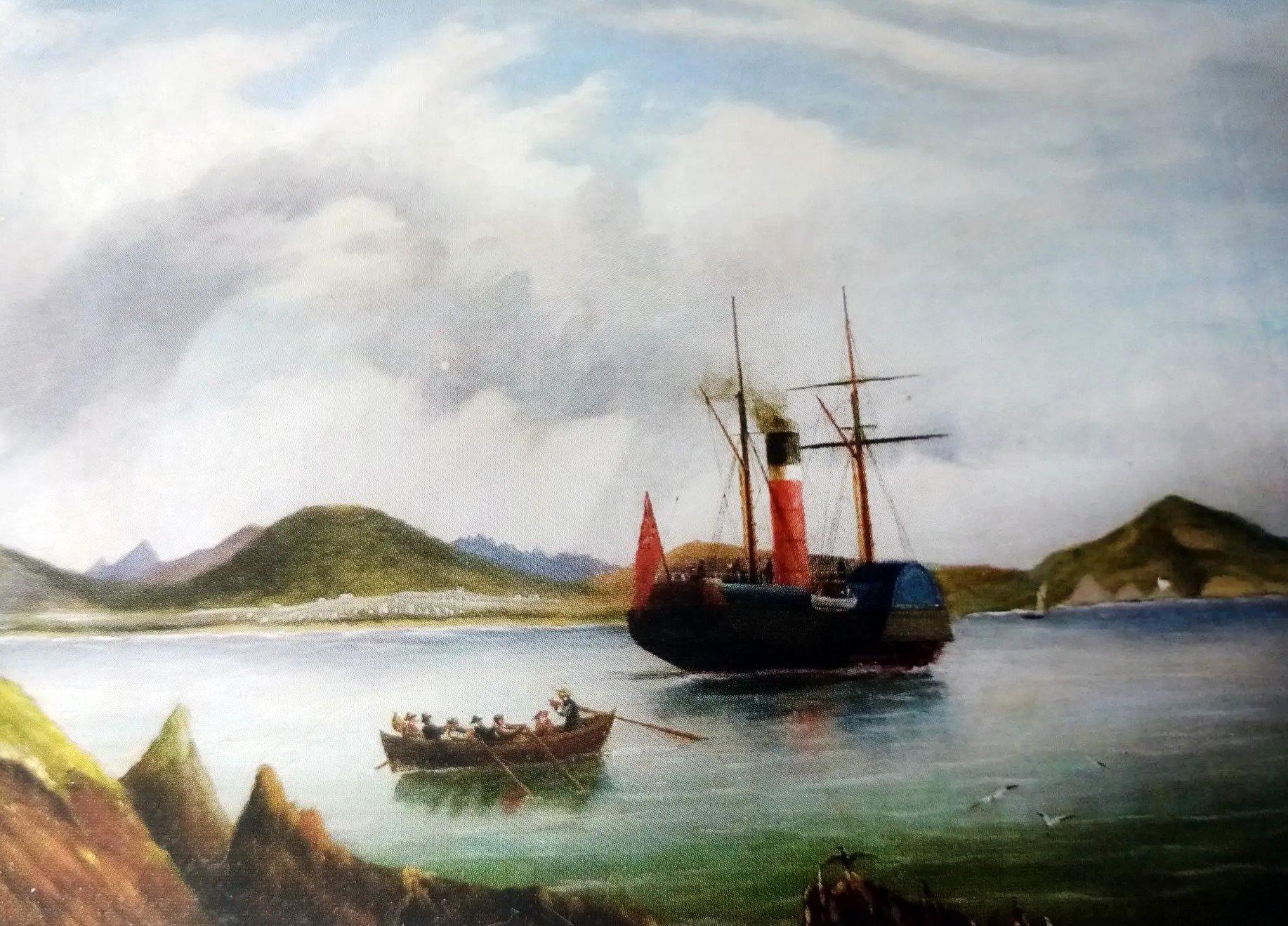
The place is called "The Birthplace of Otago" for a reason. Maori had already settled there long before whaler Johnny Jones established a shore station at Karitane in 1837 and a farm at nearby Matakana in 1837.

There’s a fine exhibition on at the moment which celebrates the Karitane connection with the Plunket Society. It was at Sir Frederic Truby King’s Karitane home that his early work on infant health was carried out and my invitation was the result of my writing a centennial history of the Plunket Society in 2007.
"Saying a few words" sounds easy but for the speaker the problem is always, "which few words?" My audience, having researched deeply for their exhibition, would know as much about Plunket as I do and speaking generally about the history of Waikouaiti would have them booing and throwing vegetables with cries of, "We know all that!"
But I had a cunning plan. I’ve been digging into goldrush pub history lately and I calculated there would be only a handful of Waikouaiti historians in the room who know more than I do about goldfields pubs, so I took the plunge and talked about a Waikouaiti pub of the 1860s.
The Golden Fleece Hotel, still operating, was an obvious choice but my audience would know its story already and my ramblings would soon be interrupted with, "Well, thank you, Jim, but time is getting on so we’ll cut you off there, I’m afraid, as there’s the election of officers and afternoon tea still to fit in."

Job was an American who first appears on the goldfields at Wetherstones running an earlier Washington Hotel but he soon moved to Waikouaiti when miners began heading to the Dunstan through the Pig Root. Hundreds came by boat from Dunedin, then had a night in Waikouaiti, probably at the Washington Hotel which had two dining rooms, eight bedrooms, bars, store room and kitchen and Job offered "first rate accommodation at moderate terms".
The Otago Daily Times caught the mood: "the Waikouaiti steamers continue to go down with considerable numbers of passengers on their way to the Dunstan diggings, and the European and Maori boats are having a harvest of it, conveying the crowd from the vessels to the shore, where Maori Amazons discharge the duty of conveying the passengers on their backs through the surf."
Soon, though, as the road from Dunedin improved and Cobb and Co. coaches began their runs, travellers by-passed The Spit. It was no longer the place to do business and time for Job to move on, first to Havelock where the Wakamarina goldfield was booming.
He set up a stationery shop and was the local agent for the Nelson paper, the Colonist. Job had trained as a typesetter as a young man in Connecticut and he would soon make his mark in the newspaper world.
First though, a move to Hokitika, again following the gold. Job’s stationery business thrived and in 1868 he headed slightly north to join fellow American John Tyrrell in publishing the Westport Times. He took an active role in running the newspaper and ran a general printing and bookselling business.
Coal, Westport’s black gold, assured him of success. He invested in coal mining and became a borough councillor as well as buying up parcels of land.
In March 1872 he found time to get married to Mary Scully, the eldest daughter of Thomas Scully who had been a major in the 65th Regiment and fought in the Land Wars before becoming a police inspector in Napier. The couple had 10 children but Job’s later years were marked by family troubles.
One son took over the newspaper but drink ruined him and he ended up running the shipboard paper on the liner Ionic before being killed in a Wellington street when he was knocked over by a motor car. Another son spent three years in prison after stealing rare African artefacts and then suffered shell shock in France before dying in an English asylum.
Happily, another son, John, became a successful singer in Melbourne and London.
Job’s wife Mary died at the age of 41 in 1894 and Job died in 1917 at 85.
Job Munson may have spent little time in Waikouaiti but I thought his story was worth telling to the town’s history buffs.
I think I got away with it.
■ Jim Sullivan is a Patearoa writer.










